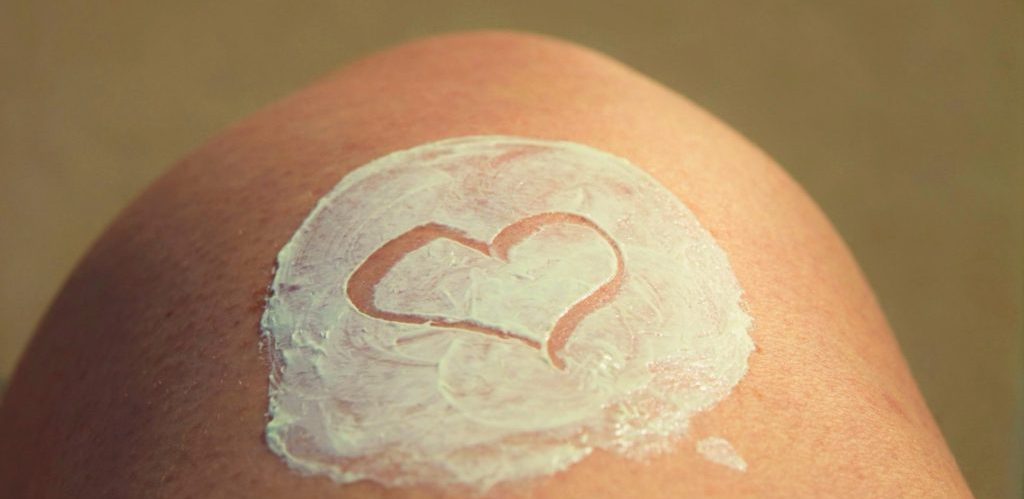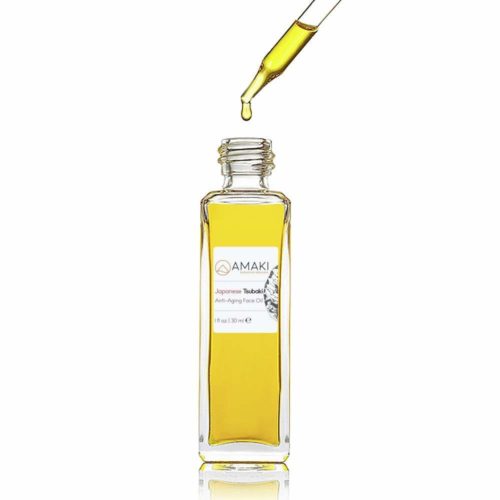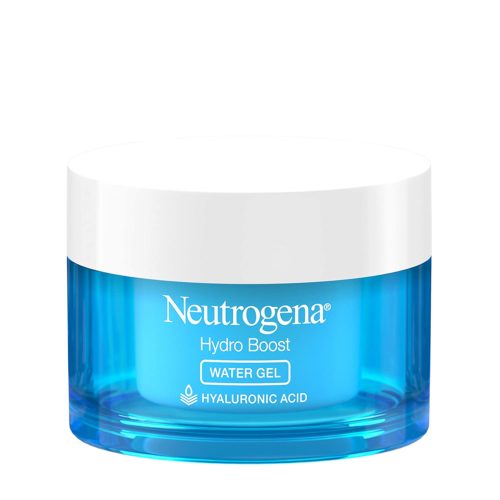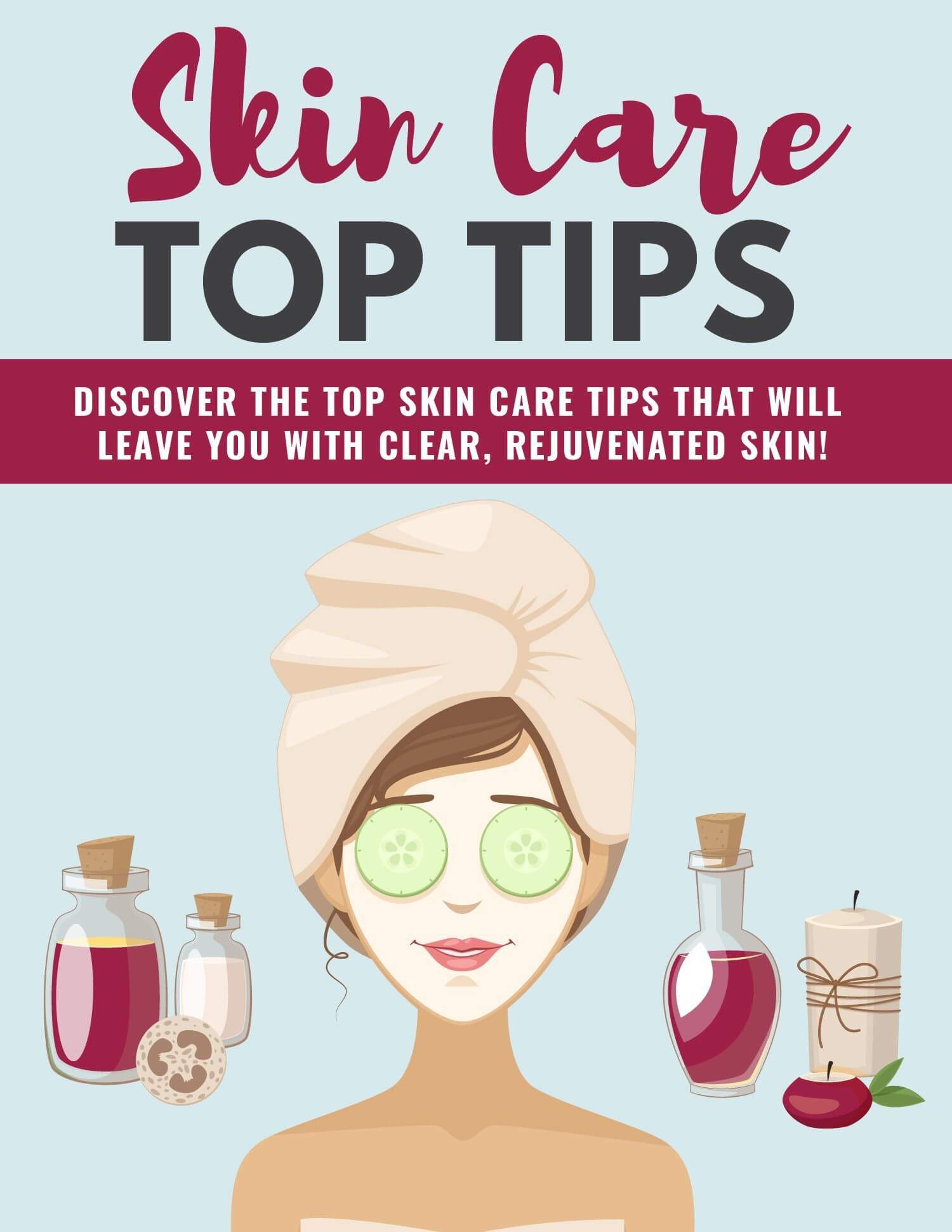Hello Beautiful! In the skincare world, there are many different products to choose from. Each one is used to treat a myriad of skin concerns, from producing too much oil to preventing wrinkles or even helping to enhance your natural glow.
Every product has a different function and name, for example, a cleanser is meant to remove dirt, makeup, excess oil, and other impurities from the face.
So, when it comes to products with names so similar, like hydrators and moisturizers, is there really a difference?
There definitely is!
Although moisturizers and hydrators are often used interchangeably, they are meant for separate skin concerns.
Moisturizers aid in treating dry skin, while hydrators can help dehydrated skin. Though this sounds like the same thing, they are very different.
Let’s talk about how these products treat these skin concerns and how to tell if your skin is dry, dehydrated, or both dry and dehydrated – yes that’s a thing.
We will also get into the real difference between hydrators and moisturizers, so the advertisers will no longer fool you with their misleading language.
Bonus, I have included my favorite moisturizers and hydrators to get you started on your search. Are you ready to dive in?
Contents
Is Your Skin Dry or Dehydrated?
You probably came to this article because you noticed that your skin was feeling and looking dry/dehydrated.
Well, the initial step in choosing the correct product is investigating if you have dry or dehydrated skin. It is like being Sherlock Holmes for your face.
First, let’s quickly talk about what is dry skin and dehydrated skin.
What is Dry Skin?
Dry skin is a skin type that is caused by a lack of sebum, also known as oil. The skin becomes dry if it is unable to produce an adequate amount of natural oils that are necessary to retain moisture on the skin.
This can occur due to genetics, hormones, environmental factors, or age. It is common for elderly people to develop dry skin. As we grow older, our skin is unable to hold as much moisture.
You may notice that you have dry skin on other areas of your body, not just on your face, such as your scalp, legs, and hands.
Those with dry skin are more susceptible to early signs of aging. Sensitivity is also more common for those with dry skin. This is because the natural oils that our body produces help to act as a natural barrier against environmental stressors.
The natural barrier that protects skin is known as the lipid barrier.
Lipid Barrier
The lipid barrier is essential to your skin’s health. It is what keeps the moisture and other good stuff in, and the bad stuff out.
Lipids are a chemical molecule or compound that is not soluble in water. There are various types of lipids, such as fatty acids.
Lipids are an essential component of skin cell communication. They create the barrier that binds the skin cells together.
Lipids make up a large percent of the skin cell membrane, making them essential to protect against external stressors, such as sun damage.
The lipid barrier is the outermost layer of the skin that provides further protection against environmental stressors and other external irritants that could potentially cause irritation, sensitivity, or damage. The lipid barrier also aids in helping your skin hold water and moisture.
When the lipid barrier is strong and working properly, it keeps the skin feeling soft, balanced, and healthy. You can tell if your lipid barrier is intact because your skin will feel smooth, and look refreshed.
When a lipid barrier is damaged small cracks are created on the skin that are not visible to the naked eye. These cracks allow moisture to escape and make it easier for irritants to enter.
Signs of a damaged lipid barrier include skin sensitivity, tightness, dryness, redness, dehydration, and flaking. Water loss is more likely when the lipid barrier is damaged, which can lead to dehydrated skin.
Lipid damage can occur if you have dry skin or dehydrated skin.
What is Dehydrated Skin?
Dehydrated skin is a skin condition that is caused by a lack of water content in the skin. The technical term for dehydrated skin is transdermal water loss.
Unlike dry skin, dehydrated skin is considered a skin condition and not a skin type.
Dehydrated skin isn’t always consistent. Someone with dehydrated skin may have symptoms of dehydrated skin one day and then have their skin feel normal the next. This is because of the many factors that can cause dehydrated skin. These factors include your diet, environment, skincare, makeup, lack of sleep, caffeine, and other factors that could damage your skin’s moisture barrier.
Although dehydrated skin lacks water and may seem dry, the skin can still produce oil. That means that dehydrated skin may occur with any skin type.
It is possible to feel oily and dehydrated at the same time. Sometimes the body will overproduce oil to attempt to balance the lack of hydration in your skin.
Dehydrated skin is more common than dry skin since there are many different reasons for it to occur.
Using a hydrator replenishes water and hydration to the skin.
To maintain water in the skin and keep it hydrated you need lipids. This means that your skin needs to be producing enough natural oils on its own or replenishing oils from moisturizers. This means that if you have dry skin, you are more susceptible to having dehydrated skin as well.
Do You Have Dry or Dehydrated Skin?
The confusion between dry and dehydrated skin still stems from their similar appearances. At first glance, both skin issues seem to be the same. They both may feel uncomfortable, itchy, tight, and you may notice your complexion is dull. Both usually result in flaking of the skin as well.
Although there are some things that are similar about dry and dehydrated skin, they do each have their own unique characteristics.
TIP: Exfoliation once a week is great for both dry and dehydrated skin. When the dead skin begins to build up on your face, it not only dulls your complexion but also prevents skincare products from doing their job! If you want to get the most out of your products and the skin-nourishing ingredients they are filled with, be sure to exfoliate once a week. Just be sure not to over-exfoliate and irritate or dry out your skin. Here is a video about how to exfoliate correctly.
Do I Have Dry Skin?
There are a few clear signs that you have dry skin. One is the way that your skin feels. Dry skin can feel very uncomfortable and taut. Although both skin issues are prone to flakes, dry skin usually has more noticeable flaking.
Also, if you have dry skin, you will typically have medium to small pores, which isn’t necessarily a bad thing. Due to the lack of oil production, the follicles do not have a chance to stretch out the pores.
Minimal breakouts are also common for those with dry skin. Oil is one of the fundamental causes of acne. Even if you have had acne when you were younger, your skin type may have changed as you have become older.
Having the occasional hormonal breakout is normal, even for those with dry skin, as that is a different type of blemish that can occur at any age for any skin type.
There is another way to tell if you have dry skin for those that have medium to deep skin tones. Dry skin can make these darker complexions appear ashy due to the lack of oil.
You may also see that your makeup will stick to very dry patches. Your foundations may appear flat and cakey, due to the lack of natural oils on your skin.
TIP: When purchasing foundations look for the words moisturizing, hydrating, glowing, and illuminating. These foundations will not be as drying and will give you a dewy finish.
The lack of oil also makes those with dry skin more prone to sensitive skin. Sensitivity may lead to inflammation that could cause a biochemical reaction. This reaction may lead to collagen and elastin breakdown in your skin, which takes a toll on your youthful appearance.
This is because the natural oils that your skin produces act as a natural barrier to protect your skin from environmental stressors.
Dry skin produces little to no oil and does not retain water or moisture easily. Without oil or lipids, the applied water will evaporate and take any existing moisture in the skin with it.
Remember, dry skin is a skin type and occurs due to environmental changes, hormones, or genetics. This means there is no “quick fix” to dry skin. Don’t let that frustrate you. There are still plenty of moisturizers that are meant to aid in repairing your skin and helping you to look refreshed and healthy.
Do I Have Dehydrated Skin?
Figuring out if you have dehydrated skin is as easy as noticing some tell-tale signs. Dehydrated skin can happen to any skin type, making it possible to have dehydrated oily, combination, dry, sensitive, or normal skin.
For example, if you notice your skin is oily and flaky, this is because your skin is dehydrated. Your body is trying to hydrate your skin by producing more sebum/oil since it is not retaining enough water.
It is also common for those with acne-prone skin to have dehydrated skin, due to the harsh products used to fight acne. This is why it is important to treat your skin with care and choose products with ingredients that won’t strip your skin of its protective barrier.
Tight skin that is shiny without any noticeable oil present is another sign of dehydrated skin.
A few other characteristics of dehydrated skin include scaly texture, exaggerated fine lines, pronounced wrinkles, amplified dark circles, and you may even notice new temporary “wrinkles” appearing.
A good test to tell if your skin is dehydrated is to look in the mirror and pinch your cheeks. If you notice that your skin gently wrinkles as you let it go, your skin is probably dehydrated and it is time to treat it with a high-quality hydrator.
TIP: Adding a hydrating mask to your weekly routine can help to balance your dehydrated skin.
(If you are having trouble determining your skin type or condition on your own, you may want to consider seeing a dermatologist.)
How to Treat Dry and Dehydrated Skin
Now that you know how to decipher what your skin is going through, you may be wondering how to treat it.
Well, that is where moisturizers and hydrators come in. Each of these products is meant to treat or aid in treating these skin concerns. But what exactly does each one do?
What Does A Moisturizer Do?
These products work more topically, unlike hydrators that work deep within the skin.
A moisturizer will help to “trap” your skin’s natural oils and maintain a healthy balance. The ingredients will stay on top of the skin to form a protective layer that dry skin cannot naturally produce, as it does not create enough lipids to form a barrier on its own.
Products meant for dry skin are made with emollient ingredients. Emollients are moisturizing components that soften and smooth the skin. Just keep in mind, emollients do not penetrate as deep when compared to humectants.
Moisturizers are typically formulated with at least 25% of various oils, to help maintain a healthy barrier on the skin. They are also usually oil or cream-based and filled with additional nutrient-rich oils.
TIP: Have dry skin? Try adding healthy fats into your diet. Foods like salmon, avocado, coconut oil, and olive oil can help your skin become more moisturized.
What Does a Hydrator Do?
A hydrator is formulated to work deep within the skin to help treat dehydrated skin. The main goal of a hydrator is to replenish the water that your skin is missing or has lost.
These products are usually formulated with ingredients known as humectants. Humectants that are from hydrogen bond with water. When humectants are found in skin care, they increase the water content in the skin. They do this by grabbing moisture from the air, as long as humidity is above 70%, and then bringing it deep into your skin’s layers.
Hydrators will typically contain less than 5% of oil in their ingredients. They are usually a lighter consistency, such as a serum, light lotion, or gel, when compared to moisturizers. Hydrators are often clear in color due to their high concentration of hydrating ingredients.
TIP: Using a hydrating spray throughout the day will help to add some extra hydration to skin. We love CV Skinlabs Rescue + Relief Spray
It gives you a nice hit of hydration, helps your makeup to last longer, and gives you a gorgeous glow.
-
CV Skinlabs Rescue + Relief Spray
$36.00Shop NowCV Skinlabs Rescue + Relief Spray is a refreshing, milky emulsion that provides deep, hydrating moisture while calming and soothing flushed, sensitive skin. CV Skinlabs Rescue + Relief Spray is a multitasking formula. It brings instant, cooling relief to itching, burning, irritated, and inflamed skin caused by sun exposure, rosacea, eczema, rashes, laser treatments, chemical peels, shaving, waxing, minor burns, and radiation treatments.
What to Look for in a Moisturizer
When looking for a quality moisturizer, consistency is key. Look for products that are filled with nutrient-rich oils. Moisturizers are usually formulated as oils, thick creams, or balms.
Ceramides are great for dry skin and definitely an ingredient you want to see in your moisturizer. They are found naturally in the skin to create a natural barrier that strengthens skin cells to stop flaking. Ceramides are made of lipids that work as the skin’s protector against environmental stressors and balance moisture levels. As we age, our ceramide levels decrease.
Other emollient barrier repairing ingredients to look for include shea butter, jojoba oil, sweet almond oil, and argan oil. Some of these emollients are considered occlusive. This means that they create a barrier to prevent water from being lost. Occlusive emollients may also lead to breakouts, so you may need to experiment before you find your perfect skin care products.
TIP: For mature skin, look for face oils that nourish and combat signs of aging. This will let your skin care multitask, adding moisture to your skin while fighting visible signs of aging.
What to Look for in a Hydrator
When looking for a great hydrator to purchase, there are certain ingredients that you want to keep an eye out for.
As I mentioned above, you want to look for humectants, as they are great for dehydrated skin. Some common humectants found in hydrators include aloe, honey, and seaweed.
Hyaluronic Acid and glycerin are key ingredients that help to attract and hold water in the skin without causing excess oiliness. Also, hyaluronic acid is able to hold around 1000 times its molecular weight in water.
Sodium hyaluronate is another great ingredient. It is a salt of hyaluronic acid with a lower molecular size for maximum absorption.
Other ingredients to look for include alpha hydroxy acid, collagen, and sodium PCA.
Also, look for products that are non-comedogenic, as they are not meant to clog your pores. This will allow water to soak in and hydrate your skin. It is also a good choice for those who produce a lot of oil.
TIP: If you have dehydrated and dry skin, you can use both a hydrator and moisturizer. Just be sure to apply the products in the correct order. A hydrator should be applied before a moisturizer. This is because oil and other emollient ingredients can penetrate the hydrator ingredients, but the hydrators do not penetrate moisturizers very well.
Our Favorite Moisturizers 2023
-
Fitglow Beauty Vita Rich Creme
$109.00Shop NowFitglow Beauty Vita Rich Bakuchiol Creme naturally awakens skin youth functions while nourishing skin health, brightening and smoothing lines. Fitglow Beauty Vita Rich Bakuchiol Creme improves skin hydration and elasticity, provides potent environmental protection from free radical damage, improves skin health and reduces inflammation, and improves skin tone and smoothness.
-
Lala Retro Anti-Aging Moisturizer for Dry Skin
$54.00Shop Now- LALA RETRO WHIPPED CREAM. Amulti-faceted rescue cream, now formulated with ceramides, that provides replenishing barrier support by reinforcing skin’s acid mantle and defending against the effects of everyday stressors.
- SKIN REHAB. This rescue cream is a blend of 6 rare African oils and plant ceramide complex to reinforce your skins acid mantle, while antioxidant-rich fermented green tea helps combat signs of aging.
-
Amaki Japanese Tsubaki Beauty Face Oil
$34.99Shop Now- SOOTHES, HYDRATES & BRIGHTENS: Keep dry skin at bay and treat your face to a fast absorbing moisturizer. You will be happy that your skin will feel like velvet and your makeup will look much better (No more tired, cakey, or flaky skin)
- ENJOY A YOUTHFUL LOOK: Get a smoother appearance, softer skin, and a beautifully radiant complexion in no time. Our regular customers notice huge improvements after a few uses.
-
Dr. Jart+ Ceramidin Cream
$33.00Shop Now- Korean cosmetics, dr.jart plus, ceramidin cream 50ml (ultra-moisturizing, elasticity, long lasting, moisture protection, more powerful moisturizing cream)
- Light-weight cream hydrates skin barrier from chronic water and moisture loss
- Enhances the skin’s natural strength and function
- Helps strengthens the skin’s natural protective barrier
Our Favorite Hydrators 2023
-
Kari Gran Essential Hydrating Rose Tonic
$42.00Shop NowKari Gran Essential Hydrating Rose Tonic is a blend of soothing ingredients that won’t strip or dry your skin like traditional toners. You can also mist it on any time for a pick-me-up if your skin is feeling parched. Kari Gran Essential Hydrating Rose Tonic also does a nice job of setting mineral makeup. A wonderful multi-tasker, use alone or with the serum to create your custom moisturizer.
-
Neutrogena Hydro Boost Water Gel
$19.59Original price was: $19.59.$17.36Current price is: $17.36.Shop Now- Hydro Boost hydrating water-gel daily face and neck moisturizer with hyaluronic acid to hydrate dry skin.
- Gel facial moisturizer formula provides hydration to skin, leaving it looking smooth and supple day after day.
- Oil-free gel moisturizer for dry skin is formulated with hyaluronic acid, a hydrator naturally found in the skin that binds to water and holds it in for more supple and smooth skin.
-
Embryolisse Lait-Crème Concentré, Face Cream
$26.10Shop NowFace Cream & Makeup Primer – Shea Moisture Cream for Daily Skincare – Face Moisturizers for All Skin Types
-
100% Pure Hydra Drench Cream
$48.00Shop Now100% Pure Hydra Drench Cream is quickly absorbing and extremely hydrating. 100% Pure Hydra Drench Cream re-hydrates thirsty skin cells with omega fatty acid rich gel water from chia seeds. For All Skin Types
Organic, Vegan, Gluten Free, Cruelty Free, No Artificial Colors and No Artificial Fragrances.
Summing Up

Well, now the mystery is solved of what is a moisturizer and hydrator. Case closed. We even got to the bottom of what the difference is between dry and dehydrated skin.
Although both “moisturizer” and “hydrator” sound similar, they are different products, used for different skin concerns. Moisturizers are used for dry skin that lacks oil and hydrators are used for dehydrated skin that lacks water.
As long as you use moisturizers and hydrators correctly, your skin will thank you.
Are you interested in learning about exfoliating your skin? Read this post!













Pingback: CBD Oil Beauty Products: Our favorite picks | SkinDeepr
Pingback: CBD Skin Creams | SkinDeepr